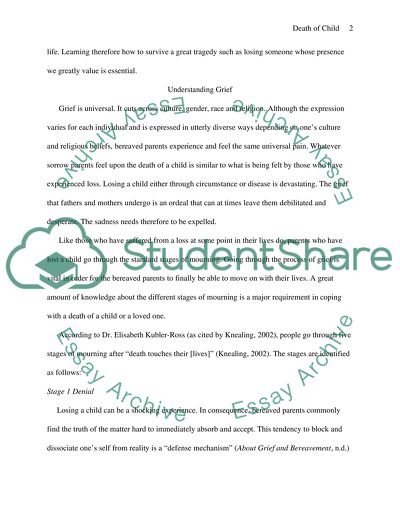Cite this document
(Coping with the Death of Own Child Essay Example | Topics and Well Written Essays - 1750 words, n.d.)
Coping with the Death of Own Child Essay Example | Topics and Well Written Essays - 1750 words. https://studentshare.org/psychology/1515202-coping-with-the-death-of-own-child
Coping with the Death of Own Child Essay Example | Topics and Well Written Essays - 1750 words. https://studentshare.org/psychology/1515202-coping-with-the-death-of-own-child
(Coping With the Death of Own Child Essay Example | Topics and Well Written Essays - 1750 Words)
Coping With the Death of Own Child Essay Example | Topics and Well Written Essays - 1750 Words. https://studentshare.org/psychology/1515202-coping-with-the-death-of-own-child.
Coping With the Death of Own Child Essay Example | Topics and Well Written Essays - 1750 Words. https://studentshare.org/psychology/1515202-coping-with-the-death-of-own-child.
“Coping With the Death of Own Child Essay Example | Topics and Well Written Essays - 1750 Words”. https://studentshare.org/psychology/1515202-coping-with-the-death-of-own-child.


